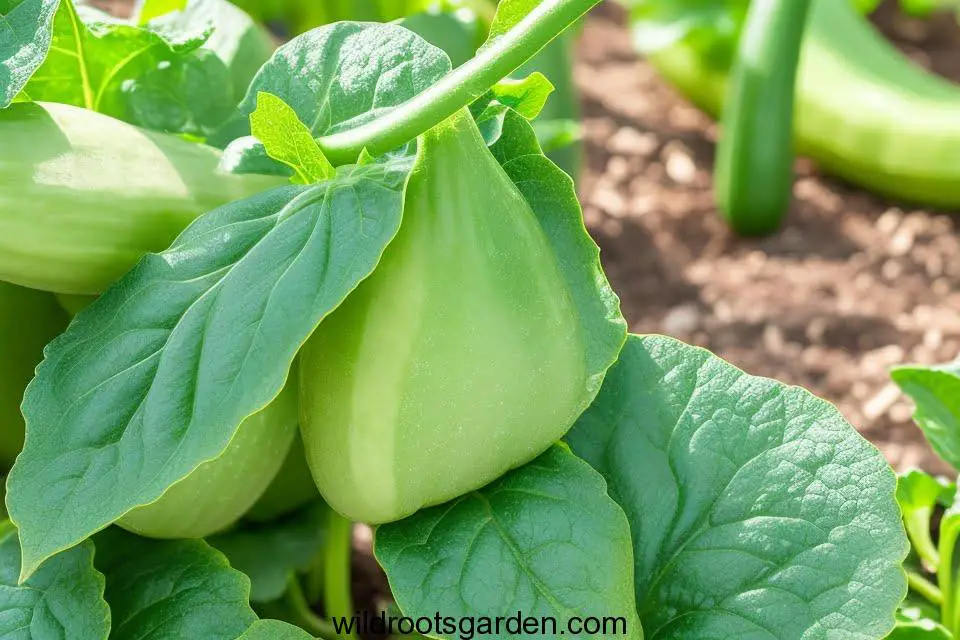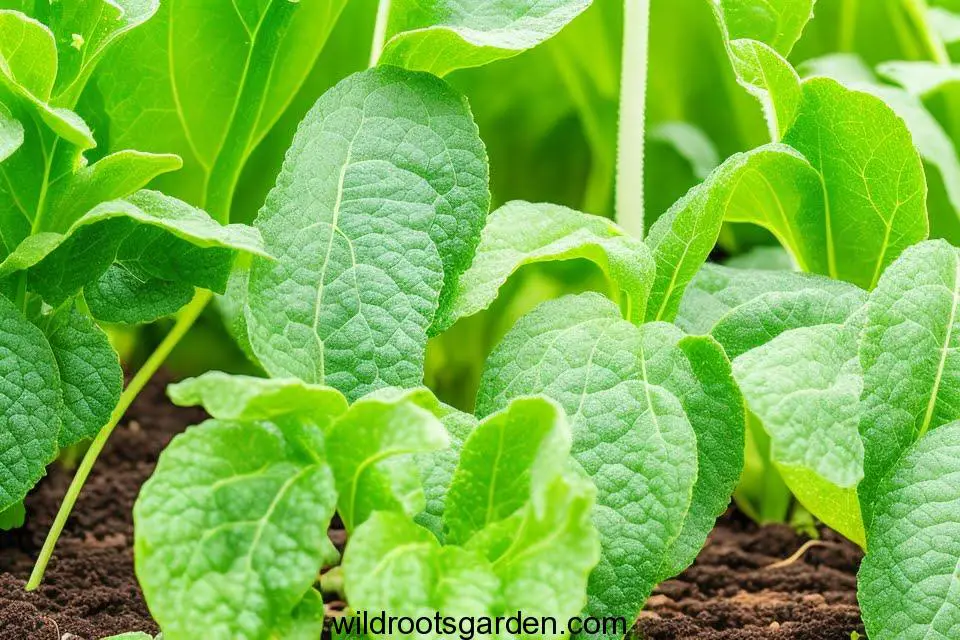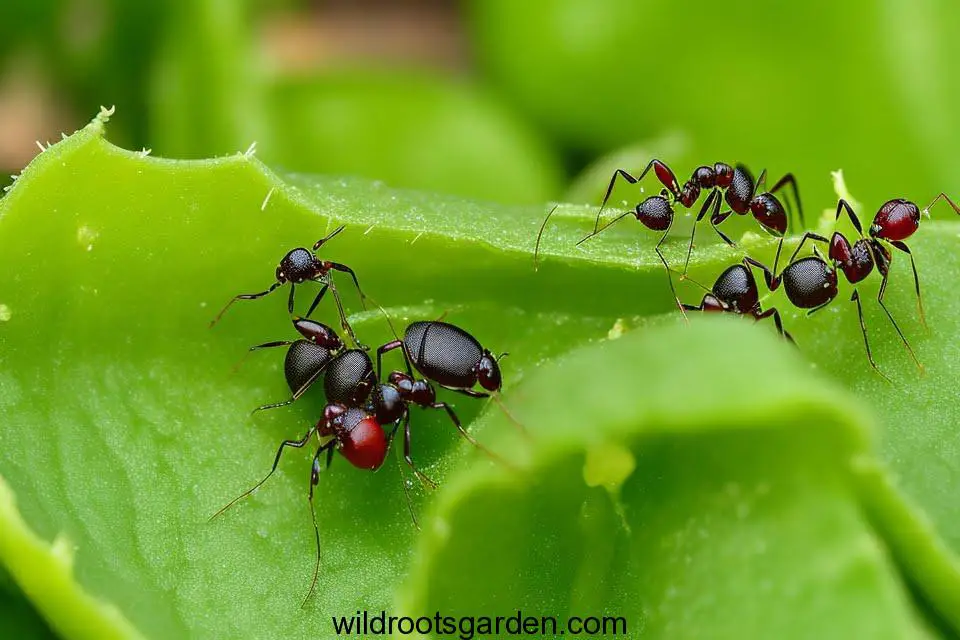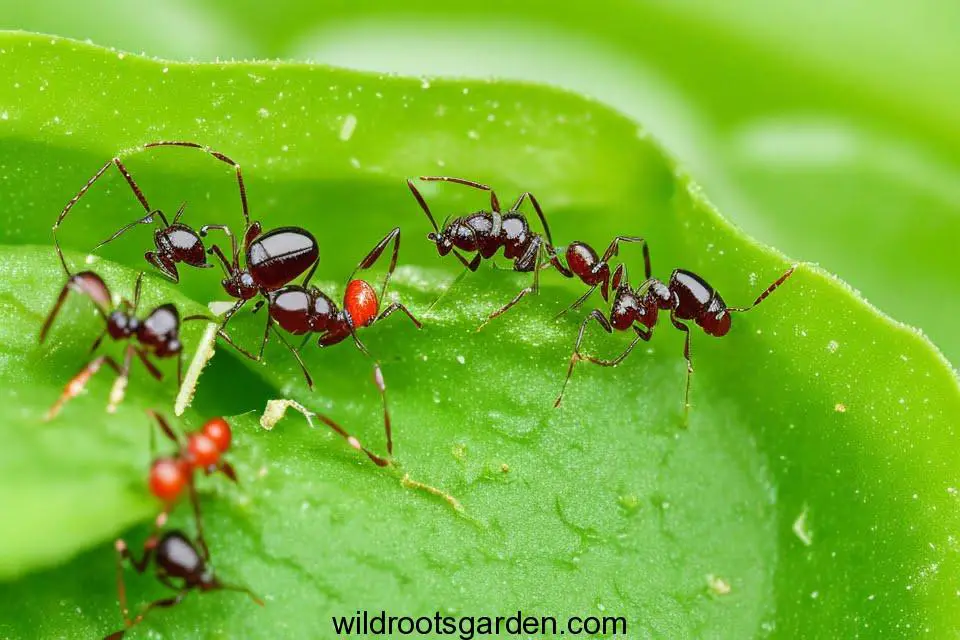It’s crucial to assess whether ants on your cucumber plants are actually harming them or are just drawn to something nearby if they appear. Ants may not directly harm cucumber plants, but they may indicate the presence of other issues or pests. You can take the following actions to control ants on your cucumber plants:
- Identify the source: Determine why the ants are attracted to your cucumber plants. They might be drawn to aphids, mealybugs, or other honeydew-producing insects that can harm your plants. Inspect your cucumber plants closely for signs of pests.
- Control aphids or other pests: If you find aphids or other pests on your cucumber plants, it’s essential to address them. You can use organic insecticidal soaps or neem oil to control aphids and other soft-bodied insects. These products are safe for edible plants when used as directed. Follow the instructions on the product label carefully.
- Remove ant trails: Ants leave scent trails to guide other ants to food sources. Wipe away these trails with a mixture of water and vinegar or soapy water to disrupt their paths and discourage further ant activity.

- Physical barriers: Consider using physical barriers to prevent ants from reaching your cucumber plants. You can wrap the base of the plants with sticky tape or create a barrier using diatomaceous earth, which is a natural substance that can deter ants.
- Remove food sources: Ensure that there are no food sources near your cucumber plants that may attract ants. Clean up fallen fruits, keep the area tidy, and avoid leaving any sugary or food scraps around the plants.
- Natural deterrents: Some natural ant deterrents include sprinkling cinnamon, black pepper, or coffee grounds around the base of the plants. These substances can repel ants to some extent.
- Seek professional advice: If the ant infestation persists or becomes overwhelming, it might be helpful to consult with a local gardening expert or professional pest control service for further guidance.
Introduction
Seeing ants crawling all over your prized cucumber plants when you’ve been caring for them in the garden may be really upsetting. These little insects have the potential to harm plants and impede their development. The reasons ants are drawn to cucumber plants, the potential harm they may cause, and practical ways to control and prevent ant infestations are all covered in this article. Now let’s get started and learn how to defend your cucumber plants from these unwanted guests!

The potential harm caused by ants on cucumber plants
Although ants might not directly harm cucumber plants on their own, their presence might make insect issues worse. Aphids and other sap-sucking pests are shielded by ants from natural predators, which promotes their growth and causes harm to the plants. Moreover, ants’ tunneling in the soil might damage the root structure, which can harm the cucumber plants’ general health and reduce their ability to absorb nutrients.
Identifying ant species on cucumber plants
Cucumber plants may be infested by a variety of ant species, thus it’s critical to identify the exact species so that the proper management measures can be taken. Argentine ants, pavement ants, and carpenter ants are a few of the common ant species found in gardens. To precisely identify the species, pay attention to their behavior, size, and nesting areas.
Natural remedies to control ant infestations
4.1. Vinegar solution: Prepare a mixture of equal parts vinegar and water and spray it around the base of the cucumber plants. The strong scent repels ants without causing harm to the plants.
4.2. Diatomaceous earth: Sprinkle food-grade diatomaceous earth around the plants and on ant trails. The microscopic particles pierce the ants’ exoskeleton, dehydrating and ultimately eliminating them.
4.3. Citrus peels: Place citrus peels or zest near the cucumber plants. The natural oils present in citrus fruits act as a deterrent to ants.
Organic insecticides for ant management
5.1. Neem oil: Dilute neem oil according to the instructions and apply it to the affected cucumber plants. Neem oil acts as a repellent and disrupts the life cycle of insects.
5.2. Pyrethrin-based sprays: Use organic sprays containing pyrethrin to control ants and other pests. These sprays are derived from chrysanthemum flowers and have insecticidal properties.

Preventive measures against ant infestations
6.1. Clear debris and organic matter: Remove fallen leaves, plant debris, and decaying organic matter near the cucumber plants. These serve as potential nesting sites for ants.
6.2. Seal entry points: Block any openings or cracks in garden structures, pots, or raised beds to prevent ants from gaining easy access to the cucumber plants.
6.3. Trim plant branches: Keep plant branches and foliage away from touching fences, walls, or other structures. Ants can use these as bridges to reach the cucumber plants.
Companion planting to deter ants
7.1. Marigolds: Plant marigolds around cucumber plants to repel ants and other insect pests. The strong scent of marigolds acts as a natural deterrent.
7.2. Mint: Grow mint plants near cucumber plants to discourage ants. The aromatic properties of mint make it unattractive to ants and other pests.
The role of proper garden maintenance
Ant infestations can be avoided by maintaining a clean and healthy garden environment. To make an area less inviting to ants, regularly clear weeds, manage excessive moisture, and make sure sufficient drainage is achieved.
Mulching techniques for ant control
Employ mulch produced from substances that repel ants, such as coffee grounds or cedar chips. To build a barrier that ants are hesitant to pass, spread a layer around the cucumber plants.
Using ant baits effectively
10.1. Commercial ant baits: Place ant baits near ant trails and entrances to lure ants. The baits contain attractants that the ants carry back to the colony, effectively eliminating the entire nest.
10.2. Homemade ant baits: Create a simple bait using a mixture of borax and sugar water. Place the bait in shallow containers near the cucumber plants, ensuring it is inaccessible to children and pets.
Significance of early detection and action
Check your cucumber plants frequently for evidence of ant activity, such as ant trails, aphids, or harmed leaves. Early intervention can stop ant populations from growing and inflicting serious damage to the plants.
Benefits of integrated pest management (IPM)
Long-term ant control requires the use of an integrated pest management strategy. You can efficiently manage populations while limiting environmental damage by integrating different tactics including cultural practices, biological controls, and targeted pesticides.
Frequently Asked Questions (FAQs)
Q1: Can ants directly damage cucumber plants? Yes, ants themselves do not harm cucumber plants but can indirectly contribute to pest problems.
Q2: How do I differentiate between harmful and beneficial ant species? While some ant species can be beneficial for your garden, such as predatory ants that feed on pests, others can cause harm. Observe their behavior and seek expert advice if unsure.
Q3: Are chemical insecticides the only solution for ant control? No, there are numerous natural and organic methods available that effectively control ant infestations without resorting to chemical insecticides.
Q4: Can ants harm other vegetables in my garden? Ants are opportunistic and can infest various plants. However, certain plant species are more susceptible to ant damage than others.
Q5: How frequently should I apply ant control measures? The frequency of application depends on the severity of the ant infestation and the chosen control method. Follow the instructions provided with the product or consult a gardening professional.
Conclusion
Although dealing with ants on your cucumber plants can be difficult, you can control and avoid ant infestations with the appropriate information and techniques. Don’t forget to take preventative precautions, turn to natural therapies, and think about using organic insecticides and companion planting. You can enjoy healthy cucumber plants free from the annoyance of ants by taking quick action and implementing integrated pest management techniques.
It’s time to defend your cucumber plants from these small pests in order to guarantee a plentiful crop!

